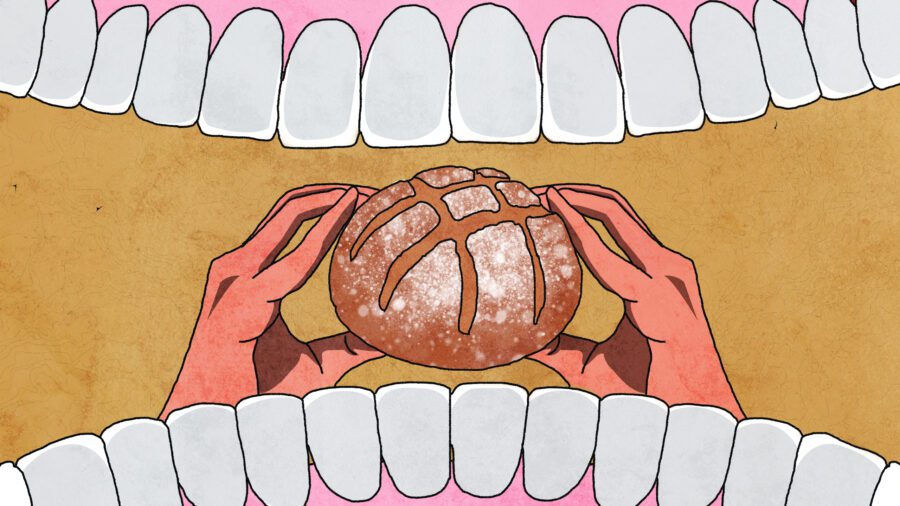
The Science of Forming Healthy Habits & Letting Go of Bad Ones, According to Author James Clear
How you spend your day today is how you’ll spend your life.
Your life is made up of individual days. That likely sounds like an obvious statement, but consider it for a moment. What you do with your time today, tomorrow, the next day, and every succeeding day will determine the trajectory of your life, and it’s up to you to decide today to engage in healthy habits.
James Clear is an author, entrepreneur, and speaker best known for his #1 New York Times bestseller, Atomic Habits: An Easy & Proven Way to Build Good Habits & Break Bad Ones, where he dives into the science and best practices of developing long-lasting healthy habits. With over 10 million copies sold, Atomic Habits has impacted the lives of so many people and helped them on their journeys to greatness.
In this article, you’ll learn about the science of forming habits and how to adopt constructive practices that will ultimately change your life.
Join In 500 Million+ On The Journey to Greatness
How Tiny Changes Lead to Remarkable Results
Before diving into the science behind creating good, productive habits, let’s take a moment to consider how the little actions you take today, tomorrow, and the next day will ultimately shape your life.
Although there are many healthy habits we can adopt into our routines to better ourselves, perhaps the most important is physical fitness. In addition to maintaining your health and increasing your lifespan, fitness can help you improve your mental health, emotional well-being, and mindset. This doesn’t mean that we all need to become gym rats, but you should adopt a regular exercise routine, whether that exercise involves weight lifting, running, Yoga, or even walking.
Now, you may intend to adopt a regular exercise routine, but if you’re not putting in the work to show up every day — or whatever days per week you intend to exercise — you’re never going to actualize your desired routine. Let’s say you decide that you want to go to the gym to use the rowing machines at least three times a week. If week after week, you’re telling yourself, “Oh, this week is just too busy. I don’t have time,” you’re never going to form that habit.
Habits take consistency, and this consistency shapes your path in life. The little actions you do every day lead to extensive results, whether good or bad, and if you can’t adopt consistent action, you’re not likely to meet your goals. Today, you say you’re too busy to exercise, and then you say the same thing tomorrow, the next day, and every subsequent day until finally, you find that you’re struggling with an unhealthy lifestyle.
Instead, if you make the seemingly small positive choice to abandon your excuses and go to the gym today or exercise at home for at least a few minutes, you’re one step closer to developing a healthy habit. Eventually, regular exercise will become easier, and you’ll find yourself coming closer and closer to your fitness and health goals with every passing week. That said, please consult with a healthcare professional before adopting a new exercise routine, as you may need to start slow with low-impact exercises like walking.
The small choices you make daily determine the trajectory of your life, so it’s time to take action and determine what daily habits you need to adopt.
How Chemistry Empowers Us to Build Habits
James Clear champions the idea that habits tap into an idea in chemistry called activation energy, which is the minimum amount of energy required for a chemical reaction.
The example that James uses to simplify this concept is striking a match. If you hold a match up to a matchbox without striking it, will you create fire? No. You need to use force to strike the match against the matchbox, and the friction between the two creates a flame. Once you light the match, you don’t need to continue striking it — it will remain lit, and you don’t need to put forth any extra energy to keep it lit.
Chemistry textbooks often depict activation energy as a hill. The height of this hill represents the amount of energy required for the reaction to take place, and it then slopes downwards, indicating that the reaction doesn’t need any additional energy.
This is how habits work. They require activation energy, but once you reach a particular threshold, you can maintain the habit without exerting as much effort.
Let’s say that you decide to start waking up at 6:00 am every morning. If you’re used to waking up at 8:00 am, this will require a certain amount of energy and discipline to begin. It will initially feel uncomfortable, and you’ll feel tempted to hit the snooze button. As time passes, though, the energy required to take consistent action will shrink, allowing you to wake up and start your day without nearly as much struggle.
Now, the bigger the habit, the more effort you’ll need to put in. Going back to the gym example, if you decide that you want to create a habit of going to the gym six times a week, that will require a great deal more activation energy than going twice a week. If you’re first starting, it will likely be more beneficial to start small so that you can put in less activation energy and form the habit.
This also applies to letting go of your bad habits. If you’re used to eating a diet primarily of fast food, giving it up entirely right away will likely be challenging. Instead, you can incrementally decrease the amount of fast food you consume. Perhaps you go from eating it five times a week to four times, and eventually, you work toward eliminating the unhealthy practice entirely.
The Vicious Cycle of Trying to Form Unrealistic Habits
Picture this: You go to the gym on January 1st. It is absolutely packed, and you struggle to find an available rowing machine. You continue going to the gym at least once a week, and with every passing week, there are fewer and fewer people until finally, there is roughly the same number of people as before New Year’s Day.
Many of these people attempted to create habits that required too much activation energy. They likely set New Year’s resolutions and stated they would go to the gym five times a week or even every day. People like to try to create these massive habits when they’re in a good mood, but once things get hard, they abandon those big goals because they require a great deal of energy to maintain. Motivation dissipates because the habits require too much activation energy. Then, these people don’t reach their fitness goals for the year.
Sadly, this can create a vicious cycle: People create these massive goals that require too much activation energy, abandon the goals, and then on December 31, they once again say they’re going to go to the gym every day. Their lives remain the same because the habits they want to adopt simply require too much energy.
For that reason, it’s often best to start small when setting habits, and you can add more work over time. For example, rather than saying, “I’m going to go to the gym every single day starting January 1st,” perhaps you just start with two times a week. Once you create that habit requiring less activation energy, you add on a day or two per week, and eventually, you can work your way up to going every day.
How Long It Takes to Form a Habit
Now that you know the importance of considering activation energy when starting a regular activity, let’s discuss how long you should expect to exert this activation energy until it becomes a habit.
There’s a prevalent myth that it takes 21 days to form a habit. This isn’t at all based on scientific evidence and is an arbitrary estimation, yet plenty of people believe it. The next time you hear someone say this, politely inform them that the answer is far more complicated.
A health psychology researcher at the University College London conducted a study about habits and published the results in the European Journal of Social Psychology. The study found that it took participants an average of 66 days to form a habit, BUT people’s results varied tremendously. The time it takes to develop a habit depends on the person, their unique circumstances, and the new habit. The amount of time it took ranged anywhere between 18 to 254 days. That’s quite a difference!
Why is this important to know? Forming habits is often challenging, especially if they require a lot of activation energy. Creating arbitrary durations for the amount of time it should take can be discouraging because after 21 days, you’ll likely still be putting forth effort into forming your new habit.
Habits take consistent work, and when things continue being hard after 21 days, it’s critical not to give up — stay committed, and enhance your life with your new healthy habits.
Fortunately, the study found that if you slip up every now and again, you can still form your new habit over time. Hitting the snooze button once isn’t going to undo all of the work you’ve put into forming a habit. That said, it’s important to remember that small actions make up our habits and lives, so if you continue making small decisions that don’t align with your goals, it’s time to get back on the right track and stay consistent with your habits.
Staying on Top of Your Patterns of Behavior
Habits require consistent action, and as we discussed, you may need to continue putting forth activation energy anywhere from 18 to 254 days before forming the new routine. A great way to keep putting forth effort into your new practices is by habit tracking. You record the days you successfully work toward forming your new habit and keep up with your existing habits.
James features a helpful and stylish habit tracker you can buy on his website, but you can also record these habits on paper or a spreadsheet. You create a column listing your different habits and rows representing the days of the month. Next, you simply check off each day when you complete the action.
This tool gives you instant satisfaction when you’re working toward your goals — there’s nothing quite like checking things off of a to-do list — and it serves as a visual reminder for taking action.
Plus, when you have a series of streaks on your habit tracker, you feel even more motivated to complete your habits because you don’t want to disrupt your ongoing streak. Say that you’re now at the point where you read every day. You certainly don’t want to break your streak if you’ve read 100 days in a row!
Now, let’s say you want to exercise, read, meditate, play an instrument, and build your side hustle daily. You’re bound to have some days in which you’re especially busy or tired, so how can you do all of these activities as well as your responsibilities at home and work?
James suggests using the Two-Minute Rule, meaning you scale back your habits to require only two minutes or less. You may not have time to go to the gym, read a chapter, meditate for 30 minutes, play piano for 30 minutes, and contact ten leads, but you likely do have time to do a single jumping jack, read a page, meditate for a minute, play piano for a minute, and contact one lead.
Of course, you will have days when you can devote more time to your habits, but when you break down your habits to two minutes or less, you exert less energy while also building a trajectory toward accomplishing your goals and building the life of your dreams.
Learn More About Forming Life-Changing Habits
By developing positive habits, you can create a strong foundation of consistent and effective behaviors that will help you progress toward your goals, and starting small is a great way to take action today.
If you’re interested in learning even more about developing good habits, you can sign up for James Clear’s 3-2-1 Newsletter, where he shares three original ideas for improving your life, two inspiring and edifying quotes from others, and one question to help you unlock your full potential every week. Additionally, you can read other articles on Greatness.com about improving your health, finances, relationships, and other facets of your life.
Today, you have the power to set the trajectory for the rest of your life. Start implementing your healthy habits no matter how small they may seem.
Greatness Authors
Greatness Authors is a collection of writers, thinkers, curiosity experts, and students of the world who are committed to bringing you the most up-to-date, impactful, and inspiring information surrounding Greatness topics.

Do You Have to Be a Morning Person to Be Successful? Here’s What Both Sides Have to Say

9 Reasons You’re Tired All the Time & How to 10x Your Energy

How to Have a Healthy Romantic Relationship Even if You Share Different Beliefs

The 7 Best Vitamins to Naturally Promote Better, Uninterrupted Sleep According to Shawn Stevenson

The Secret of Sourdough: Why This Bread Is Actually Great for Your Gut (Plus, How to Make Your Own!










